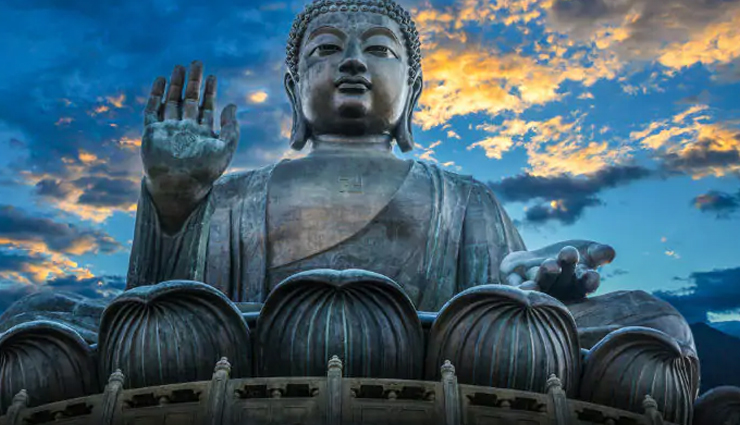
The festival has got different names in different places. The Theravadas call it by the name Vesak, while in Mahayana Buddhist traditions it is known by its Sanskrit name ‘Vaisakha’. In India, the day is familiar as Buddha Purnima, while it is ‘sa-ga zla-ba’ in Tibet and Vishakha Pujain in Sri Lanka.

Vesak is celebrated by Buddhists all over the world with the observance of Buddha’s teachings of life, love, peace and spirituality. Ceremonial hoisting of Buddhist flag and the chanting of hymns in praise of Buddha, Dharma (his teachings, also known as Dhamma) and Sangha (his disciples) collectively called as Holy Triple Gem, are conducted in Buddhist temples in the day of Vesak. All devotees are expected to assemble in their various temples before the dawn of the day. The devotees may bring flowers, candles and joss-sticks, and lays them at the feet of the teacher which is a symbolic remembrance of the non-sustainability of life. It implies that just as the beautiful flower would wither away and, candles and joss-sticks would burn out, life would also subject to destruction. In some temples, a small statue of Buddha is placed in a water-filled basin over which devotees pour water. This is to enact the events of devas giving heavenly offerings at the time of Buddha’s birth and is symbolic to the cleansing of practitioners’ bad karma.
The devotees are enjoined to refrain from violence on Vesak. They are encouraged to have vegetarian food and to remain sober. In some countries, notably Sri Lanka, liquor shops and slaughterhouses remain closed for the two days set aside for Vesak celebrations. Also, in many countries, birds and animals are freed as a symbolic act of liberation. This implies granting of freedom to those who are held captive or tortured against their will. In general, devotees reaffirm their belief in Panchsheel or five precepts, and some devotees resolve themselves to lead a noble life observing the five percepts – not to take life, not to steal, not to lie, not to consume liquor or any intoxicants and not to be disloyal. Some of them may spend the whole day in temples with renewed determination to observe eight percepts or eightfold path. Vesak celebrations also involve efforts to bring happiness to the poor and needy. People may distribute cash or gifts to charitable homes or provide food and clothes to the poor.
In Lumbini – the birthplace of Buddha, thousands of pilgrims from various parts of the world come together and celebrate Buddha’s birthday. The government of Nepal announces a public holiday on Buddha Purnima or Buddha Jayanti and is widely celebrated across the country. People donate foods and clothes to the needy and also provide financial aid to monasteries and schools.
The government of India also announces holiday on Buddha Purnima. On this day, pilgrims from all over the world visit Bodh Gaya (the place where Buddha got enlightenment) and the Mahabodhi temple. The Mahabodhi temple is decorated, and prayers, sermons, processions and special events highlighting the life of Buddha are conducted. Group meditations are also organized and devotees make resolutions to follow Buddha’s preaching.